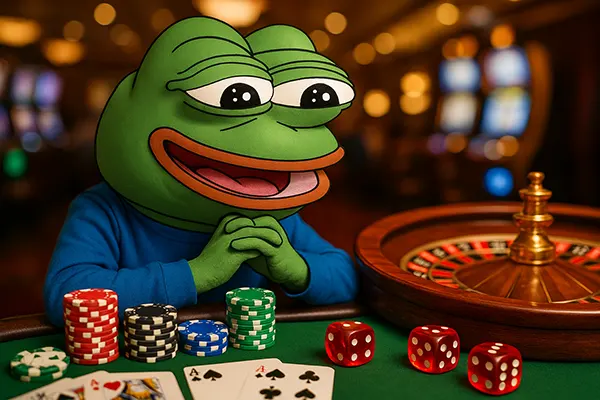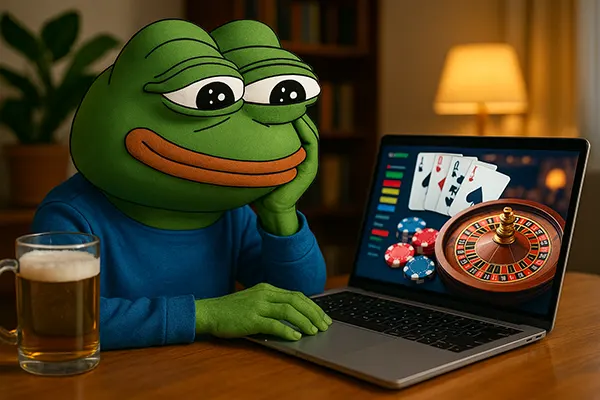
Meme Culture and Casinos: How Humour and Irony Shape Gambling Brand Images
Meme culture has become a powerful communication tool across social media, influencing public opinion, brand identity and even purchasing decisions. In the gambling industry, this cultural shift hasn’t gone unnoticed. Casinos are increasingly leveraging irony, satire, and humour through memes to forge a more relatable image, particularly among younger audiences. But how exactly does this informal tone impact the perception of gambling brands, and what are the benefits and risks involved?
The Influence of Internet Humour on Brand Visibility
Over the past decade, meme formats have evolved from niche internet jokes to global content vehicles used by companies for marketing. For casinos, this offers an opportunity to sidestep traditional advertising restrictions and engage users in a playful, indirect manner. A well-crafted meme can spread rapidly, exposing the brand to thousands or even millions of potential players.
Memes allow gambling operators to align themselves with current trends, cultural phenomena or ironic self-awareness — all of which appeal strongly to Gen Z and Millennials. Brands like Stake and Roobet have incorporated memes into their Twitter and TikTok activity, creating a unique voice that feels informal and authentic to users.
By making fun of traditional gambling stereotypes or highlighting common player frustrations with a humorous twist, brands can disarm criticism and present themselves as more self-aware and transparent. This shift to humour-driven content also makes brands more approachable and humanised in a space often criticised for being opaque or profit-driven.
Challenges of Using Irony in a Regulated Environment
Despite its appeal, meme marketing within the gambling sector comes with challenges. Regulatory bodies across the UK and EU are increasingly attentive to how gambling is promoted, especially on social platforms frequented by minors. Irony and sarcasm, by nature, are open to misinterpretation — a meme intended to criticise excessive gambling behaviour may be misunderstood as an endorsement.
Casinos must therefore carefully balance tone and context. Using memes to foster engagement cannot cross into glamorisation or trivialisation of risk. Any suggestion that gambling is a ‘funny’ way to make money or an everyday activity without consequence can trigger warnings or fines from regulators.
Additionally, humour varies significantly across cultures. A meme well-received in the UK might seem inappropriate or offensive in another jurisdiction, making global campaigns difficult to manage. Legal departments are now often involved in content review processes for meme-based materials, ensuring compliance without stifling creativity.
How Memes Build Community and Loyalty Among Players
Meme culture doesn’t just entertain — it builds community. Online gambling forums, Telegram groups and Reddit threads often circulate and produce memes that become part of the ‘insider language’ among players. When brands join these discussions or mirror the same humour in their official communications, they gain credibility and embed themselves in player communities organically.
Creating or sharing memes also allows casinos to interact with their audience without pushing promotions or bonuses directly. This soft engagement keeps users interested in the brand without creating ad fatigue. In turn, these interactions help build emotional connection and customer loyalty — particularly when memes reflect genuine understanding of player experiences.
Brands that effectively blend irony with empathy, like using memes to poke fun at bad luck while also acknowledging the importance of responsible play, earn respect. Users feel ‘seen’ and understood, which can enhance long-term brand value far beyond any single campaign or bonus offer.
The Role of User-Generated Meme Content
Many of the most viral casino-related memes are created not by companies, but by players themselves. This user-generated content is especially powerful because it is perceived as honest, raw and authentic. Brands that re-share this material with credit show that they value the creativity and humour of their audience.
Some casinos have gone a step further by launching meme competitions, rewarding creators with free spins or merchandise. These campaigns encourage organic promotion and produce content that resonates with peers. It also shifts the brand from being a broadcaster to a participant in the conversation.
However, there is also risk. Not all memes reflect the values or tone a brand wants to promote. Monitoring, moderation and selective re-sharing are essential to avoid aligning with content that may be irresponsible or misleading.

Long-Term Effects on Branding and Public Perception
The use of memes may appear short-lived or superficial, but it contributes to long-term brand building. Casinos that consistently maintain a recognisable meme-driven tone often stand out from more traditional competitors. They become associated with relatability, entertainment and cultural awareness — values increasingly important to modern audiences.
Moreover, memes are inherently shareable. This makes them a cost-effective marketing asset, especially when user engagement increases organic reach. When users choose to interact with or repost meme content, they amplify brand visibility without being prompted or incentivised directly.
However, this branding strategy also opens the door to criticism. Some players and advocacy groups argue that using humour to represent gambling downplays its addictive nature and financial risks. These concerns are valid and should be addressed within corporate responsibility policies.
Maintaining Responsibility While Staying Relevant
Responsible gambling messages must not be excluded from humorous campaigns. In fact, humour can be used to reinforce these messages in a more memorable way. Memes that acknowledge poor decisions or loss with a light tone can help normalise discussions about risk and control, provided they are crafted with care.
Several brands now include “play responsibly” tags even in their meme content. This ensures consistency and keeps player protection top-of-mind. Aligning meme humour with broader ethical standards is not only a compliance requirement but also a reputational safeguard.
As meme culture continues to shape digital communication, casinos must evolve carefully. Being funny and ironic should never come at the cost of clarity, transparency or safety. A well-executed meme strategy can humanise a brand — but only when paired with sincerity and responsibility.
